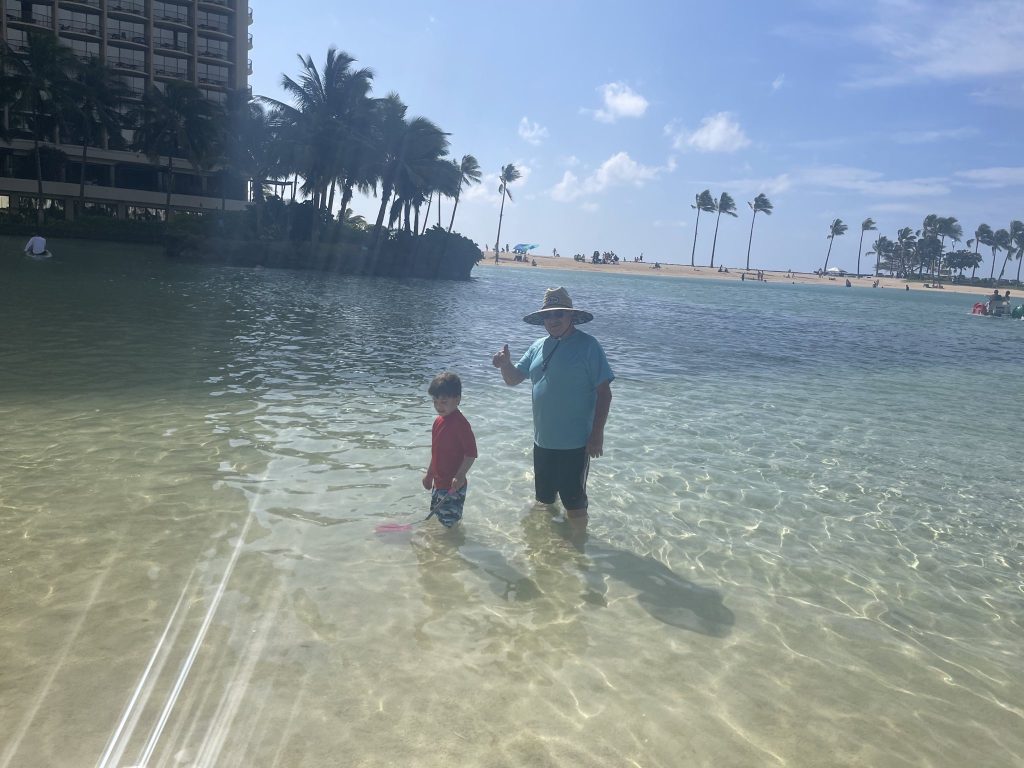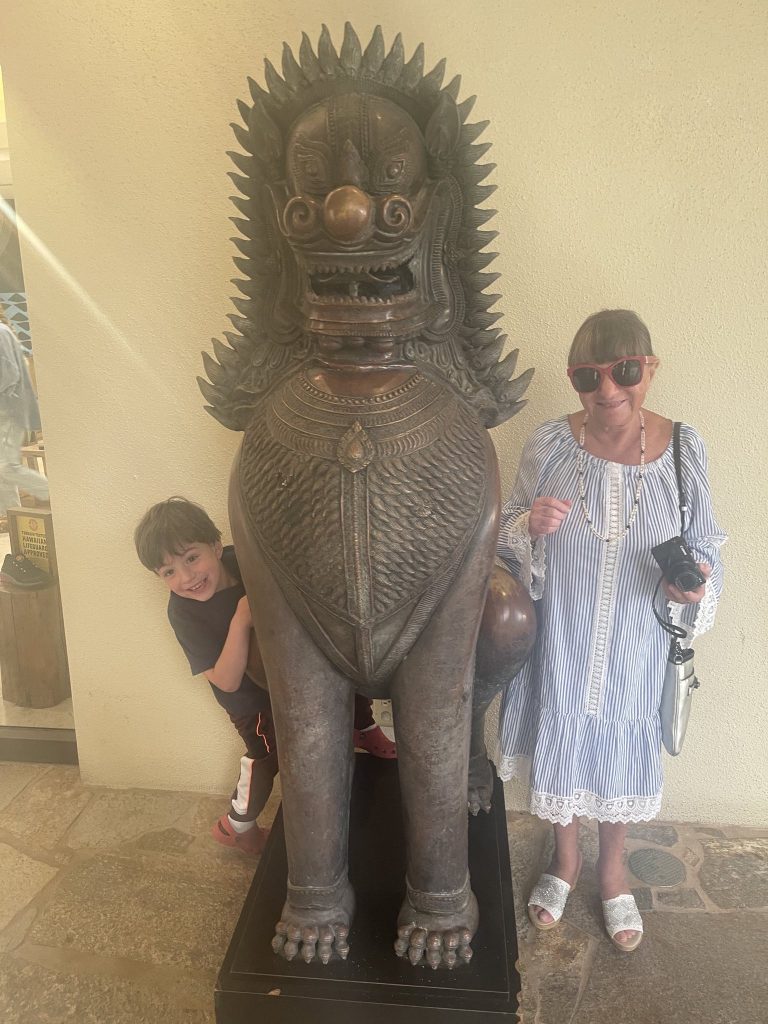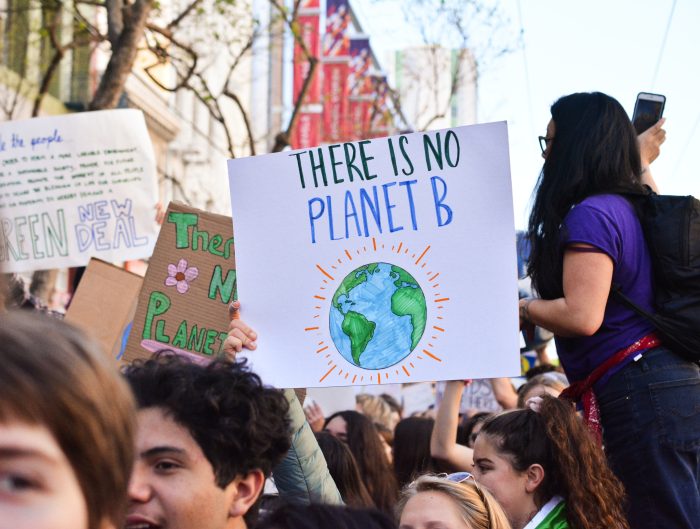
Ricky and my Dad
I’m presently with my family in Oahu, Hawaii, to celebrate my dad’s 80th birthday. In the spirit of this being a big blowout celebration, my dad upgraded us to first-class for the five-hour flight here from Los Angeles. At first, we thought this would be great: more comfort, sure, but hopefully it would make for a smoother trip with our four-year-old son, Ricky. And he was pretty excited indeed, playing with all the buttons—you can make the seats lie entirely flat!—chatting excitedly with my mom, and generally in a good mood.
Given his good mood, I decided to try to relax and re-watch Good Will Hunting (much worse than I remember it, BTW!); but halfway through I was interrupted by the flight attendant, telling us that other first-class passengers (plural) had complained to him about how much noise Ricky was making. Now, I’ve been on flights where other people’s kids screamed at the top of their lungs for hours, and I’ve even asked the parents to try to do something. But this wasn’t that: he was talking a little loudly, sure, but I couldn’t even hear him with my headphones on!
We dutifully asked Ricky to use his indoor voice, but no matter how quiet he was, I could see multiple passengers—behind, in front, and next to us—sighing, raising their hands in frustration, and, eventually, complaining directly to us. One of them turned to me and said, “I’m trying to sleep and I can even hear him through my headphones; I’ll go see if there’s an open seat in the back.” Which was an interesting comment given that, for one, he wasn’t trying to sleep, and for another, he had those large noise-canceling headphones that can muffle the sound of the plane. There’s no way he could hear Ricky.
The dissatisfaction amongst these entitled ticket holders seemed to spread like a contagion. At one point, after an hour during which Ricky hadn’t said a thing, he accidentally turned on the overhead light; this inspired the couple behind us to immediately remonstrate, loudly explaining that this was preventing them from sleeping. On and on it went, as though we were in a room-full of Kings and Queens who expected absolute perfection in their surroundings, and a coterie of servants to fulfill their every whim and fancy. Of course, that is the world in which the uber-wealthy live. (Don’t get me wrong. I’m not at all complaining about being in first-class on a flight to Hawaii! This is purely an exploration of the mentality of the kvetchers in our midst!)
I guarantee you that, had we been in coach, no one would have said a thing. Rather, others would’ve likely remarked on what a good traveler he is! The whole episode reminded me of a 2016 study which found that “passengers in economy seating were 3.84 times more likely to have an incident of air rage if they were on a plane that had a first-class section. They were 2.18 times more likely to have an outburst if they had to walk through first class to board the plane, as opposed to boarding in the middle of the plane, directly into the economy section.” There’s something about seeing how the rich live that inspires a mix of anger and jealously.
Yet I wonder if all those people who long to be wealthy have a sense of how miserable the rich are, how much of their time they spend maintaining their existing stuff—homes, cars, boats—and planning to acquire more. And beyond that, I wonder if it’s possible to become super-wealthy without turning into the kind of person that loses his shit over a loud-but-happy kid sitting in your vicinity on a flight. (I can’t say how wealthy the people on this particular flight were. Even though we were splurging, my dad could afford a couple of first-class seats at around $1,000 a person, so we’re not exactly paupers. And anyway, the truly super-rich travel in private jets. My assumption about their wealth has more to do with their reaction to the slightest inconvenience than the price of the tickets. What’s more, there is the possibility, if not probability, that paying so much money, regardless of one’s wealth, puts one in the mindset of expecting perfection.)

Ricky and my Mom
The question of whether money makes one happy has been studied and length, and the results are pretty consistent: it does, until it doesn’t. A 2010 Princeton Study, which is considered one of the gold standards in this field, “indicated money can help make you happier but not beyond an income of $75,000.” Other studies have shown that making more money does result in marginal happiness, but after a while the marginal benefit becomes insignificant—and probably not worth the ongoing effort to maintain it. Another consistent finding, however, is that, once one is materially comfortable, what does bring significant additional happiness is having an experience like going to the movies with friends or, oh I don’t know, taking a trip to Hawaii. So perhaps the optimal life situation is to earn enough to be comfortable—to own or rent a nice home, to afford a couple vacations (traveling in economy or maybe economy plus; you can’t beat a little more leg room!), and to generally not have to worry about one’s finances most of the time. In any event, I’m enjoying my time here, although nervous about the flight home!




Leave A Reply